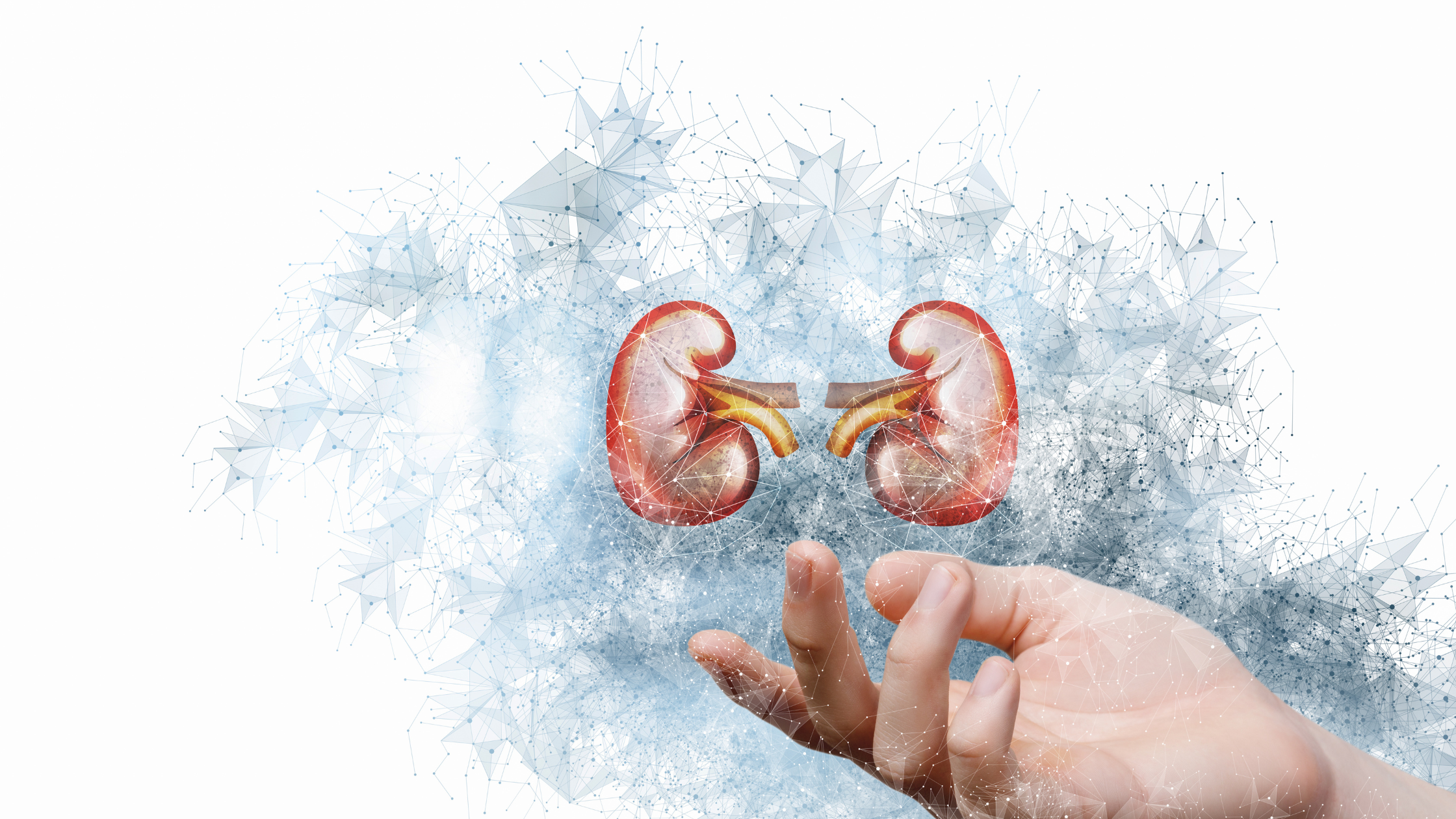Understanding Chronic Kidney Disease Stage 3: What You Need to Know
Living with chronic kidney disease (CKD) stage 3 can feel overwhelming. As kidney function begins to decline, many patients have questions about...
5 min read
Quality Insights Staff : Oct 3, 2024 11:51:20 AM
In addiction recovery, the path to healing is filled with challenges, triumphs, and a need for unwavering support. Compassionate care, a vital element in this journey, is often the difference between success and despair. Dr. Gary Stoner, a retired OB-GYN with over 30 years of experience, led Geisinger's Women's Health Opioid Use Disorder Program and now advocates to reduce stigma in treatment, especially for pregnant women. Joining him in this mission are Samantha Benner and Felicia Cohen, two courageous mothers who have overcome addiction and share their stories to illuminate the profound impact of empathy and understanding in the recovery process.
The following audio excerpts were taken from the "From Research to Reality: Translational Science in Supporting Pregnant and Parenting Women with Substance Use Disorders" webinar, held as part of the Healthy Connections initiative by Marshall Health.
Dr. Stoner’s journey into addiction medicine was shaped not only by formal education but, more importantly, by the people he treats. While the technical knowledge gained through programs like SAMHSA and ASAM provided him with essential skills, it was his patients who gave him his true education. These firsthand experiences taught him the importance of listening to those struggling with addiction and treating them with both compassion and an open mind.
Care is not just about administering medication or following protocols. As Dr. Stoner notes, even non-verbal cues like body language can create barriers. When patients feel stigmatized, judged, or shamed, they may retreat, afraid to seek the care they desperately need. To foster recovery, providers must go beyond the "bricks and mortar" of medical treatment and offer genuine empathy.
For Felicia, recovery was intertwined with a history of abuse. Drugs became her escape, a way to numb the pain of sexual, physical, and emotional trauma. She recalls that her biggest barrier to seeking help was the stigma she faced in healthcare facilities, where she was often judged rather than supported.
Felicia’s experience underscores the harsh reality many individuals face when seeking help for addiction: the stigma that pervades healthcare facilities. Her recollection of being looked down upon and talked down to reveals a fundamental barrier to recovery, one that often leads those in need to retreat
Growing up in an environment marked by abuse, Felicia turned to drugs as a means of coping with her pain, having never been taught healthier mechanisms to deal with her trauma. It was only after removing the toxicity from her life and allowing others to offer her some support that she could begin her climb out of the depths of addiction.
Her story emphasizes the critical need for compassionate care in healthcare settings, where providers must recognize the multifaceted nature of addiction and the deep impact early life experiences have on mental health. Most importantly, healthcare professionals must recognize those in recovery as human beings with hopes, dreams, and an inner strength that can be unlocked with the right guidance and support.
Growing up, Samantha was raised by her mother, a single parent of five children with four different fathers, who struggled to provide stability. They moved frequently and relied on government assistance, as her mother never held a job and was often in abusive relationships. Samantha witnessed both her mother's abuse and experienced sexual abuse herself, with drugs and alcohol constantly present in their lives. She feels that, unlike those who viewed addiction as a choice, she never truly had that option.
During her pregnancy, having worked hard to overcome addiction and already on the MAT (Medication-Assisted Treatment) program, Samantha faced several scares. Each time she went to the hospital, disclosing her history of addiction immediately changed how she was treated. She noticed the nonverbal cues—residents squinting their eyes or their tone shifting—and they began asking questions that felt out of place.
The stigma followed her into the delivery room as well, when the obstetrician’s judgment impacted the care she received, including missing the important skin-to-skin contact with her newborn. Listening to Samantha recount the experience, the frusteration and hurt is clear in her tone.
This incident illustrates how medical professionals can unintentionally punish individuals because of the prejudice surrounding recovery. As Samantha recalls, the obstetrician's refusal to acknowledge her truth not only robbed her of the precious skin-to-skin contact with her newborn, but also reinforced the deep-seated biases that persist in medical environments. There is an ongoing struggle within the healthcare system to view addiction as a chronic disease rather than a moral failing. Such misconceptions can lead to serious consequences, ultimately hindering a patient's recovery journey.
In stark contrast to her previous experiences, Samantha recalls her first encounter with Dr. Stoner, which marked an impactful moment in her journey. His supportive and affirming approach helped her recognize her achievements and the progress she had made, reminding her that her path of recovery was worth celebrating.
This powerful acknowledgment from Dr. Stoner highlights the importance of validation and support in the recovery process. Samantha’s journey demonstrates that even after years of hard work, the stigma surrounding addiction can still weigh heavily on individuals, making it difficult for them to recognize their own progress. By fostering an environment of understanding and encouragement, healthcare providers can play a vital role in helping patients reclaim their lives and move forward with confidence.
Samantha attributes her success to several key elements: being drug-free, MAT, counseling, participation in the 12-step program, and a newfound support system. This comprehensive approach empowered her to confront challenges head-on. For instance, when Samantha had to undergo a C-section, she was given pain medication. This time, however, it was a different situation; the obsession to use was gone, allowing her to focus on her recovery and well-being without the fear of relapse.
Addiction is a widespread challenge. To achieve better care—care that truly supports those suffering—the medical community must prioritize compassion and transform the stigma surrounding addiction. This approach empowers individuals like Samantha to embrace their healing journeys and creates space for others in their community to begin their own paths to recovery.
Unfortunately, events that highlight stigma, like those described in the audio clip above, happen often to patients trying to recover from opioid use disorder. Dr. Stoner’s philosophy is clear: no patient should ever be kicked out of a recovery program. He emphasizes the need for flexibility, empathy, and understanding in treatment. His firm belief is that when patients are open about their struggles, it is a sign of progress, not failure. Dr. Stoner’s unwavering commitment to keeping his doors open to those in need sets a powerful example for other providers in the field.
The stories of Samantha and Felicia, paired with Dr. Stoner’s insights, remind us that addiction recovery is not a one-size-fits-all process. It requires medical knowledge, but more importantly, it demands compassion, empathy, and patience. By creating a judgment-free environment and listening to patients, healthcare providers can play a pivotal role in helping individuals reclaim their lives.
With the right tools and support, a life free from addiction is not just a dream—it’s a reality. For the full discussion between Dr. Stoner, Felicia and Samantha, watch the video footage from this session of the 2024 Research to Reality Conference. Healthcare professionals aiming to refine their expertise can explore Quality Insights' Addiction and Stigma Courses offered at sudlearn.com.
Thank you for reading this article on Quality Quest For the latest updates on healthcare quality improvement, sign up for our email alerts to get new content delivered directly to your inbox.

Living with chronic kidney disease (CKD) stage 3 can feel overwhelming. As kidney function begins to decline, many patients have questions about...

Chronic Kidney Disease (CKD) happens when your kidneys slowly lose their ability to work well over time. Knowing the stages of CKD is important...

Managing chronic kidney disease (CKD) requires a well-balanced diet that supports kidney function while keeping sodium, phosphorus, and potassium in...